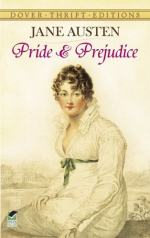|
This section contains 5,467 words (approx. 19 pages at 300 words per page) |

|
SOURCE: Brownstein, Rachel M. “Jane Austen: Irony and Authority.” Women's Studies 15, nos. 1-3 (1988): 57-70.
In the following essay, Brownstein focuses on several of Austen's novels, including Pride and Prejudice, to support her argument that Austen uses irony to convey a “discursive authority” from which women can derive pleasure in a patriarchal society.
It is a truth universally acknowledged, right now, that language is involved in giving and taking both power and pleasure. Whether we begin by asking if the pen is a substitute for the penis, or think about why we read stories of love and adventure, or consider, from any point of view, pornography or psychoanalysis, we end by analyzing ways people please themselves and assert authority over others by using words. (To observe that critics writing about pleasure and power have managed to get what measure of the good stuff they can is to state the...
|
This section contains 5,467 words (approx. 19 pages at 300 words per page) |

|


